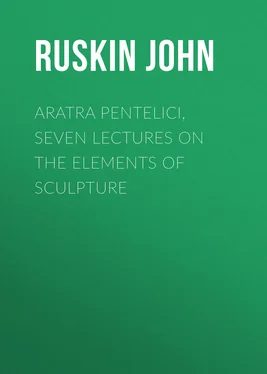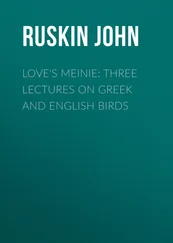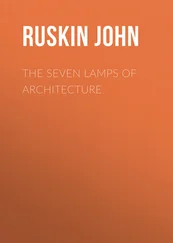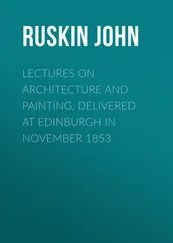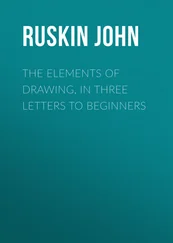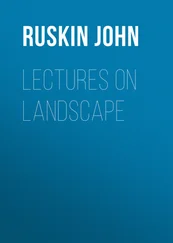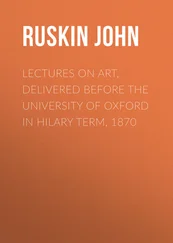John Ruskin - Aratra Pentelici, Seven Lectures on the Elements of Sculpture
Здесь есть возможность читать онлайн «John Ruskin - Aratra Pentelici, Seven Lectures on the Elements of Sculpture» — ознакомительный отрывок электронной книги совершенно бесплатно, а после прочтения отрывка купить полную версию. В некоторых случаях можно слушать аудио, скачать через торрент в формате fb2 и присутствует краткое содержание. Жанр: foreign_antique, foreign_home, literature_19, visual_arts, на английском языке. Описание произведения, (предисловие) а так же отзывы посетителей доступны на портале библиотеки ЛибКат.
- Название:Aratra Pentelici, Seven Lectures on the Elements of Sculpture
- Автор:
- Жанр:
- Год:неизвестен
- ISBN:нет данных
- Рейтинг книги:5 / 5. Голосов: 1
-
Избранное:Добавить в избранное
- Отзывы:
-
Ваша оценка:
- 100
- 1
- 2
- 3
- 4
- 5
Aratra Pentelici, Seven Lectures on the Elements of Sculpture: краткое содержание, описание и аннотация
Предлагаем к чтению аннотацию, описание, краткое содержание или предисловие (зависит от того, что написал сам автор книги «Aratra Pentelici, Seven Lectures on the Elements of Sculpture»). Если вы не нашли необходимую информацию о книге — напишите в комментариях, мы постараемся отыскать её.
Aratra Pentelici, Seven Lectures on the Elements of Sculpture — читать онлайн ознакомительный отрывок
Ниже представлен текст книги, разбитый по страницам. Система сохранения места последней прочитанной страницы, позволяет с удобством читать онлайн бесплатно книгу «Aratra Pentelici, Seven Lectures on the Elements of Sculpture», без необходимости каждый раз заново искать на чём Вы остановились. Поставьте закладку, и сможете в любой момент перейти на страницу, на которой закончили чтение.
Интервал:
Закладка:
In like manner, any other strange or terrifying object, such, for instance, as a powerfully noxious animal or plant, he would be apt to regard in the same way; and very possibly also construct for himself frightful idols of some kind, calculated to produce upon him a vague impression of their being alive; whose imaginary anger he might deprecate or avert with sacrifice, although incapable of conceiving in them any one attribute of exalted intellectual or moral nature.
45. If you will now refer to §§ 52-9 of my Introductory Lectures, you will find this distinction between a resolute conception, recognized for such, and an involuntary apprehension of spiritual existence, already insisted on at some length. And you will see more and more clearly as we proceed, that the deliberate and intellectually commanded conception is not idolatrous in any evil sense whatever, but is one of the grandest and wholesomest functions of the human soul; and that the essence of evil idolatry begins only in the idea or belief of a real presence of any kind, in a thing in which there is no such presence.
46. I need not say that the harm of the idolatry must depend on the certainty of the negative. If there be a real presence in a pillar of cloud, in an unconsuming flame, or in a still small voice, it is no sin to bow down before these.
But, as matter of historical fact, the idea of such presence has generally been both ignoble and false, and confined to nations of inferior race, who are often condemned to remain for ages in conditions of vile terror, destitute of thought. Nearly all Indian architecture and Chinese design arise out of such a state: so also, though in a less gross degree, Ninevite and Phœnician art, early Irish, and Scandinavian; the latter, however, with vital elements of high intellect mingled in it from the first.
But the greatest races are never grossly subject to such terror, even in their childhood, and the course of their minds is broadly divisible into three distinct stages.
47. (I.) In their infancy they begin to imitate the real animals about them, as my little girl made the cats and mice, but with an under-current of partial superstition—a sense that there must be more in the creatures than they can see; also they catch up vividly any of the fancies of the baser nations round them, and repeat these more or less apishly, yet rapidly naturalizing and beautifying them. They then connect all kinds of shapes together, compounding meanings out of the old chimeras, and inventing new ones with the speed of a running wildfire; but always getting more of man into their images, and admitting less of monster or brute; their own characters, meanwhile, expanding and purging themselves, and shaking off the feverish fancy, as springing flowers shake the earth off their stalks.
48. (II.) In the second stage, being now themselves perfect men and women, they reach the conception of true and great gods as existent in the universe; and absolutely cease to think of them as in any wise present in statues or images; but they have now learned to make these statues beautifully human, and to surround them with attributes that may concentrate their thoughts of the gods. This is, in Greece, accurately the Pindaric time, just a little preceding the Phidian; the Phidian is already dimmed with a faint shadow of infidelity; still, the Olympic Zeus may be taken as a sufficiently central type of a statue which was no more supposed to be Zeus, than the gold or elephants' tusks it was made of; but in which the most splendid powers of human art were exhausted in representing a believed and honored God to the happy and holy imagination of a sincerely religious people.
49. (III.) The third stage of national existence follows, in which, the imagination having now done its utmost, and being partly restrained by the sanctities of tradition, which permit no farther change in the conceptions previously created, begins to be superseded by logical deduction and scientific investigation. At the same moment, the elder artists having done all that is possible in realizing the national conceptions of the gods, the younger ones, forbidden to change the scheme of existing representations, and incapable of doing anything better in that kind, betake themselves to refine and decorate the old ideas with more attractive skill. Their aims are thus more and more limited to manual dexterity, and their fancy paralyzed. Also in the course of centuries, the methods of every art continually improving, and being made subjects of popular inquiry, praise is now to be got, for eminence in these, from the whole mob of the nation; whereas intellectual design can never be discerned but by the few. So that in this third era we find every kind of imitative and vulgar dexterity more and more cultivated; while design and imagination are every day less cared for, and less possible.
50. Meanwhile, as I have just said, the leading minds in literature and science become continually more logical and investigative; and once that they are established in the habit of testing facts accurately, a very few years are enough to convince all the strongest thinkers that the old imaginative religion is untenable, and cannot any longer be honestly taught in its fixed traditional form, except by ignorant persons. And at this point the fate of the people absolutely depends on the degree of moral strength into which their hearts have been already trained. If it be a strong, industrious, chaste, and honest race, the taking its old gods, or at least the old forms of them, away from it, will indeed make it deeply sorrowful and amazed; but will in no whit shake its will, nor alter its practice. Exceptional persons, naturally disposed to become drunkards, harlots, and cheats, but who had been previously restrained from indulging these dispositions by their fear of God, will, of course, break out into open vice, when that fear is removed. But the heads of the families of the people, instructed in the pure habits and perfect delights of an honest life, and to whom the thought of a Father in heaven had been a comfort, not a restraint, will assuredly not seek relief from the discomfort of their orphanage by becoming uncharitable and vile. Also the high leaders of their thought gather their whole strength together in the gloom; and at the first entrance to this Valley of the Shadow of Death, look their new enemy full in the eyeless face of him, and subdue him, and his terror, under their feet. "Metus omnes, et inexorabile fatum,… strepitumque Acherontis avari." This is the condition of national soul expressed by the art, and the words, of Holbein, Dürer, Shakspeare, Pope, and Goethe.
51. But if the people, at the moment when the trial of darkness approaches, be not confirmed in moral character, but are only maintaining a superficial virtue by the aid of a spectral religion; the moment the staff of their faith is broken, the character of the race falls like a climbing plant cut from its hold: then all the earthliest vices attack it as it lies in the dust; every form of sensual and insane sin is developed; and half a century is sometimes enough to close in hopeless shame the career of the nation in literature, art, and war.
52. Notably, within the last hundred years, all religion has perished from the practically active national mind of France and England. No statesman in the senate of either country would dare to use a sentence out of their acceptedly divine Revelation, as having now a literal authority over them for their guidance, or even a suggestive wisdom for their contemplation. England, especially, has cast her Bible full in the face of her former God; and proclaimed, with open challenge to Him, her resolved worship of His declared enemy, Mammon. All the arts, therefore, founded on religion and sculpture chiefly, are here in England effete and corrupt, to a degree which arts never were hitherto in the history of mankind; and it is possible to show you the condition of sculpture living, and sculpture dead, in accurate opposition, by simply comparing the nascent Pisan school in Italy with the existing school in England.
Читать дальшеИнтервал:
Закладка:
Похожие книги на «Aratra Pentelici, Seven Lectures on the Elements of Sculpture»
Представляем Вашему вниманию похожие книги на «Aratra Pentelici, Seven Lectures on the Elements of Sculpture» списком для выбора. Мы отобрали схожую по названию и смыслу литературу в надежде предоставить читателям больше вариантов отыскать новые, интересные, ещё непрочитанные произведения.
Обсуждение, отзывы о книге «Aratra Pentelici, Seven Lectures on the Elements of Sculpture» и просто собственные мнения читателей. Оставьте ваши комментарии, напишите, что Вы думаете о произведении, его смысле или главных героях. Укажите что конкретно понравилось, а что нет, и почему Вы так считаете.
